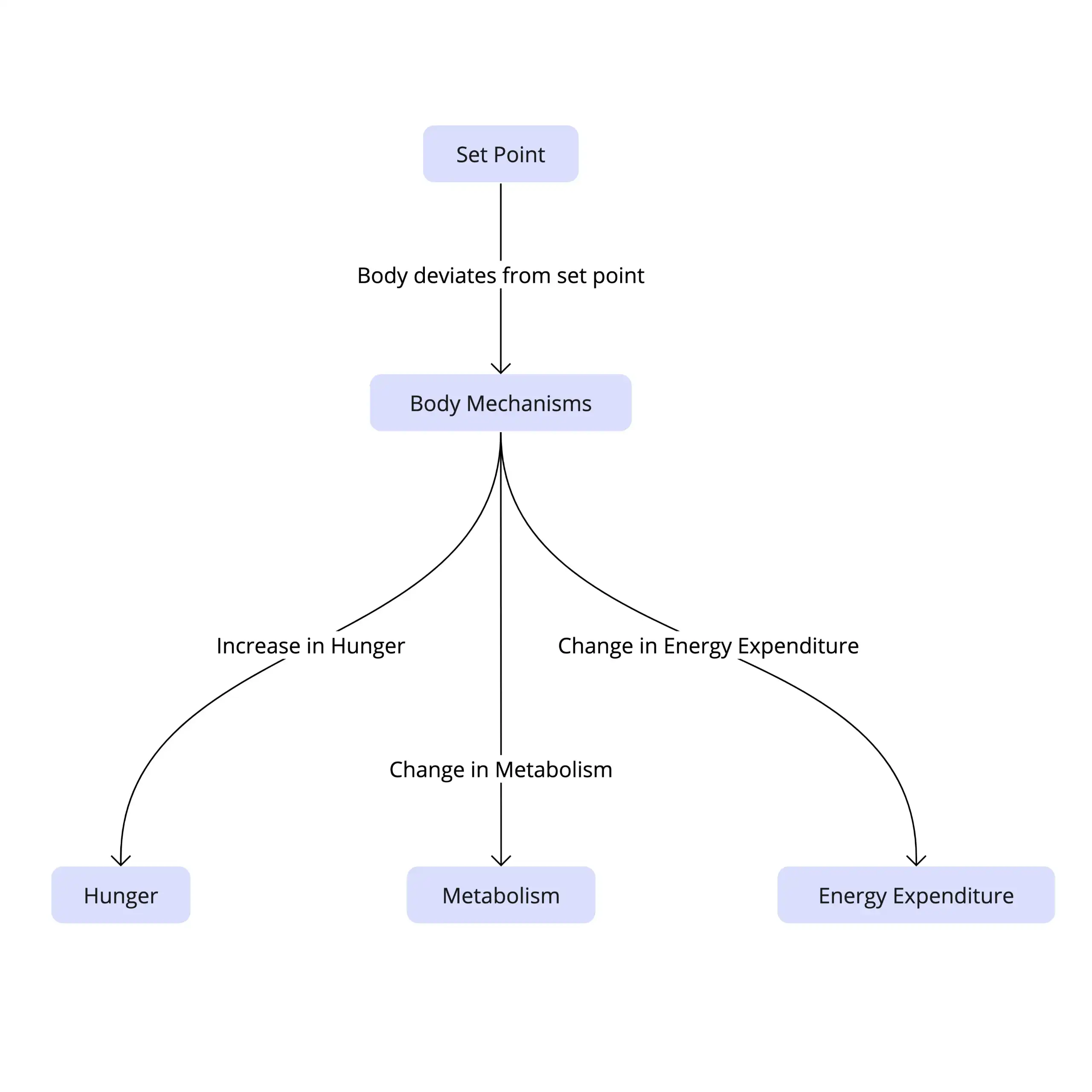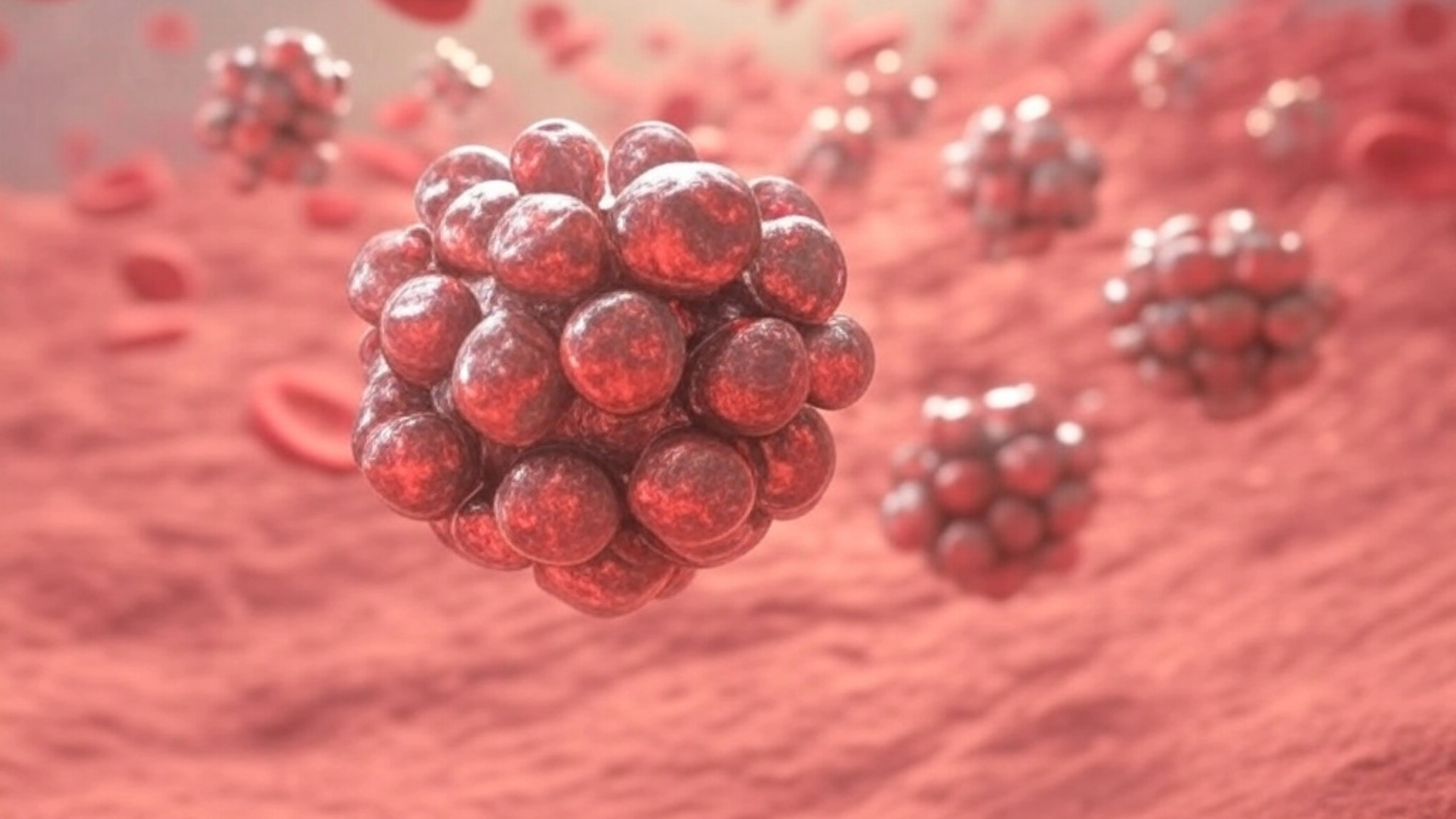Your body has a preferred weight range, known as the set point. Your brain’s alarm bells go off as you shed pounds and venture away from this comfort zone. It starts to get the impression that something’s amiss and becomes determined to guide you back to that familiar weight it cherishes.
As we go deeper, you’ll find some hormonal shenanigans at play. Take leptin, for instance. This hormone is produced by fat cells. Its levels drop as weight is lost. What does this mean for you? Well, with less leptin around, your brain gets the idea that we’re running out of fuel, compelling you to eat more. Then there’s ghrelin, the notorious hunger hormone. As you shed those pounds, you might find it spiking, teasing your appetite more than usual.
And just when you think you’ve got a grip on things, there’s the metabolic curveball to consider. The leaner you become, the fewer calories your body demands. This means that even if you consume the same amount of food, your weight loss might not progress as much.
Next, let’s talk about efficiency overdrive. The less you feed your body, the more adept it becomes at using every bit of fuel you provide. This newfound efficiency implies that you’re burning even fewer calories than before.

All this can seem like the body and brain are at odds with weight loss. Here’s a bit more about that.
The body and brain have evolved to prioritize survival. When our ancestors faced food scarcity, the ability to store energy (as fat) and to feel motivated to seek out food (hunger) were advantageous traits. That’s why the body has mechanisms to store energy efficiently and signal when it’s time to eat.
In modern times, with the abundance of food, this survival mechanism can work against our weight loss goals. Here’s how the “tug-of-war” between the body and brain can play out:
Let’s look at this from the body’s perspective. The body is like a Swiss watch, optimizing energy use. When you start losing fat, the body perceives it as a potential threat to survival. It reacts by becoming more energy-efficient, slowing down metabolism, and signaling the brain to increase hunger and conserve energy.
From the brain’s perspective, the brain receives signals from hormones like leptin (from fat cells) and ghrelin (from the stomach). When leptin levels drop due to fat loss, the brain perceives it as an energy deficit and reacts by increasing hunger and the desire to eat. Conversely, when ghrelin levels rise, it amplifies feelings of hunger. Furthermore, the brain has a perceived “set point” or preferred weight range. Drastic changes from this set point will trigger the brain to intervene to restore the balance.
And for modern weight loss goals, our conscious desire to lose weight for aesthetic, health, or other personal reasons can conflict with the body’s evolutionary drive to maintain energy stores. We might decide to shed pounds, but our brain, acting on ancient survival instincts, pushes back with increased hunger and decreased energy expenditure.
What can we do?
Knowledge is power. By understanding how your body reacts, you can prepare yourself mentally and not get discouraged when progress slows.
If your body is burning fewer calories, you may need to reassess your calorie needs and make necessary adjustments.
To prevent plateaus, try mixing different forms of exercise. If you’ve been doing only cardio, consider adding strength training.
Increasing calorie intake occasionally can reset some of the hormones responsible for hunger and metabolism, especially leptin.
Sleep can mess with hunger hormones, making weight loss even more challenging.
So, while it might feel like the body and brain are “fighting” against our conscious weight loss efforts, they’re just trying to keep us alive based on ancient programming. Realizing this can help us be more compassionate toward ourselves during our weight loss journey and arm us with strategies to outsmart our biology.



